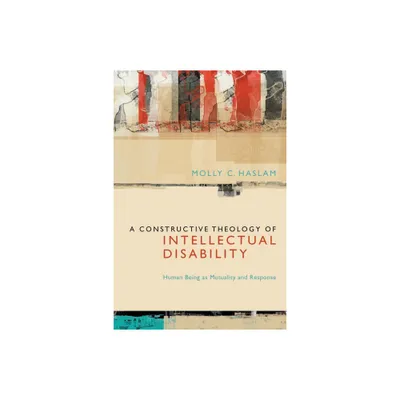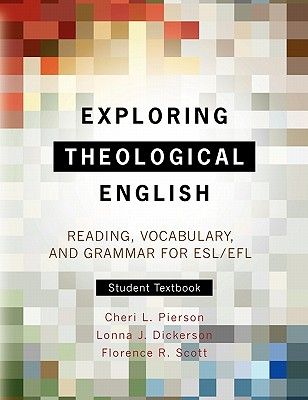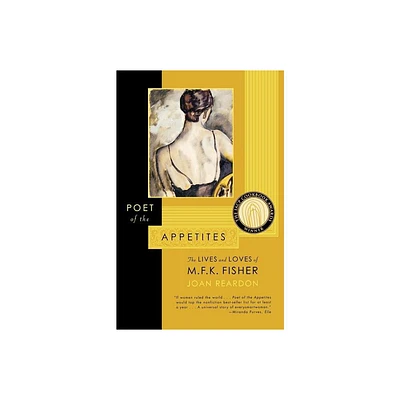Home
Intellectual Appetite: A Theological Grammar
Loading Inventory...
Barnes and Noble
Intellectual Appetite: A Theological Grammar
Current price: $24.95


Barnes and Noble
Intellectual Appetite: A Theological Grammar
Current price: $24.95
Loading Inventory...
Size: OS
*Product Information may vary - to confirm product availability, pricing, and additional information please contact Barnes and Noble
The appetite for knowledge--wanting to know things--is very strong in humans. Some will sacrifice all other goods (sex, power, food, life itself) for it. But this is not a simple appetite, and this book treats some of its complications, deformations, beauties, and intensities.
Christian thinkers have traditionally distinguished between good and bad forms of the appetite for knowledge, calling the good "studiousness" and the bad "curiosity." The former is aimed at joyful contemplation of what can be known as gift given; the latter seeks ownership and control of what can be known as property for the taking. Paul J. Griffiths's
Intellectual Appetite
offers an extended study of the difference between the two, with special attention to the question of ownership: What is it like to think of yourself as the owner of what you know, and how might it be different to think of what you know as a gift given you?
How these questions are answered has a deep impact on a number of issues in contemporary educational and legal theory. Most fundamentally, there is the question of what it means to know something at all. On that, this book offers an account of knowledge in terms of intimacy: to know something (a mathematical formula, a past event, another human being, the lineaments of a galaxy) is to become intimate with it according to its kind.
There are also important and currently pressing ancillary questions; for example, that of what plagiarism is and how it should be addressed. Plagiarism is often understood in part as theft of intellectual property, and since it is essential to the argument of this book that seeking knowledge ought not to be understood as seeking ownership, the book offers a theological defense of plagiarism.
ABOUT THE AUTHOR:
Paul J. Griffiths is Warren Chair of Catholic Theology at Duke Divinity School. He has held academic positions at the University of Notre Dame, University of Chicago, and the University of Illinois at Chicago. He has published eight books as sole author, and seven more as co-author or editor, among which the most recent are
Reason and the Reasons of Faith
with Reinhard Hütter and
Lying: An Augustinian Theology of Duplicity.
PRAISE FOR THE BOOK:
"[A]n extended meditation on the pursuit of knowledge."--Beth Haile,
Theological Studies
"[A] very intelligent book by someone who has thought deeply and humbly about the Christian life. Centuries ago St. Peter Damian said that Christ was his grammar. Paul Griffiths helps us to understand what the old monastic reformer had in mind."--Lawrence S. Cunningham,
Commonweal
"Griffiths writes with an indelible passion for learning and knowledge, and with a cool rationality that attends to the argument with intensity, wit, and generosity." --Lyndon C. Shakespeare,
American Theological Review
Christian thinkers have traditionally distinguished between good and bad forms of the appetite for knowledge, calling the good "studiousness" and the bad "curiosity." The former is aimed at joyful contemplation of what can be known as gift given; the latter seeks ownership and control of what can be known as property for the taking. Paul J. Griffiths's
Intellectual Appetite
offers an extended study of the difference between the two, with special attention to the question of ownership: What is it like to think of yourself as the owner of what you know, and how might it be different to think of what you know as a gift given you?
How these questions are answered has a deep impact on a number of issues in contemporary educational and legal theory. Most fundamentally, there is the question of what it means to know something at all. On that, this book offers an account of knowledge in terms of intimacy: to know something (a mathematical formula, a past event, another human being, the lineaments of a galaxy) is to become intimate with it according to its kind.
There are also important and currently pressing ancillary questions; for example, that of what plagiarism is and how it should be addressed. Plagiarism is often understood in part as theft of intellectual property, and since it is essential to the argument of this book that seeking knowledge ought not to be understood as seeking ownership, the book offers a theological defense of plagiarism.
ABOUT THE AUTHOR:
Paul J. Griffiths is Warren Chair of Catholic Theology at Duke Divinity School. He has held academic positions at the University of Notre Dame, University of Chicago, and the University of Illinois at Chicago. He has published eight books as sole author, and seven more as co-author or editor, among which the most recent are
Reason and the Reasons of Faith
with Reinhard Hütter and
Lying: An Augustinian Theology of Duplicity.
PRAISE FOR THE BOOK:
"[A]n extended meditation on the pursuit of knowledge."--Beth Haile,
Theological Studies
"[A] very intelligent book by someone who has thought deeply and humbly about the Christian life. Centuries ago St. Peter Damian said that Christ was his grammar. Paul Griffiths helps us to understand what the old monastic reformer had in mind."--Lawrence S. Cunningham,
Commonweal
"Griffiths writes with an indelible passion for learning and knowledge, and with a cool rationality that attends to the argument with intensity, wit, and generosity." --Lyndon C. Shakespeare,
American Theological Review


















